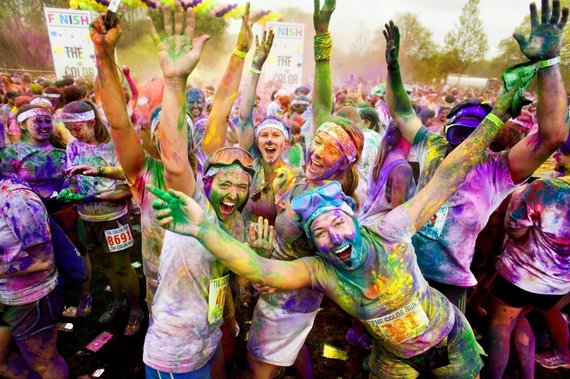"We're not just a product. We're an experience." This all-too-common quote has rapidly made its way into advertising and marketing circles. And it's driving me just a little crazy.
Potato chips, automobiles, electronics, credit cards. Framing brands as experiences is the new craze. I get it; there are gobs of research demonstrating how the next generation of consumers value experience over ownership unlike the generations before them. There is also significant research that talks about how experiential brands have become a force for social good in our society.
I dig it. It's cool to be experiential.
But as someone who runs a marketing agency for experience-based brands, I can say confidently that being a truly experiential brand takes serious commitment and investment that defies logic for many traditional marketers, particularly those entrenched in selling products through a lens of features and benefits.
No matter what line of business you are in, stop and think before you throw out the "E" word. Consider these points of advice I've absorbed over the past decade through my work with truly exceptional experience brands. Welcome to "experience boot camp."
Experience Brands Feel the Feedback
Truly experiential brands spend massive amounts of time with their customers in the experience. A live sporting event, a Broadway show, a restaurant opening. The producers of these experiences see their return on investment with their own eyes in ways few people have the nerves to handle.
Ever watch the face of an obviously dissatisfied customer at a restaurant, sending back the same dish you think is quite tasty? Great experiential brands don't simply review customer feedback; they watch customers' true feedback in real-time. For the brand, this immediacy to reaction creates a set of instincts that can't be found in any Excel sheet. Such immediacy creates a mindset of empathy and understanding of how and why the experience actually matters to the customer.
Experience Brands Value the Journey, Not Just the Destination
Truly experiential brands construct and invest in a journey of greatness. They believe the journey is as important as the destination and maximize the power of anticipation.
How the product is shipped, how the product is packaged, how the consumer relationship grows over time, what surprising or delightful moment enhances the transaction--if you are selling goods, this is just a sampling of the touch points where experiential investment is needed beyond what your budget may dictate as reasonable. Don't believe me? Anyone who has purchased something from Apple or Warby Parker knows what I'm talking about.
Experience Brands Value Return on Emotion
Over 85% of live experiences are sold through some driver of word-of-mouth. This was true before the advent of digital and demonstrates one central point: experiences matter to people. Experiences nurture relationships with loved ones and create memories that appreciate in value over time; memories are among the most treasured assets we carry as humans.
Great experiential brands follow the mantra "with great power comes great responsibility" and do everything in their power to be truly great. Consumers are ever-vigilant; their choices about how and where to invest time and money speak far louder than words. Cut corners on quality, skim on customer service, provide slow shipping times - people know greatness (or the lack thereof) when they feel it and the experience business is truly all about "return on emotion. "
The growing value of experiential brands should make us all very happy. A world of "doing" is far better than a world of simply "having." Before you do though, get your game face on - transforming a product mindset into an experience mindset is a unique experience in and of itself.
